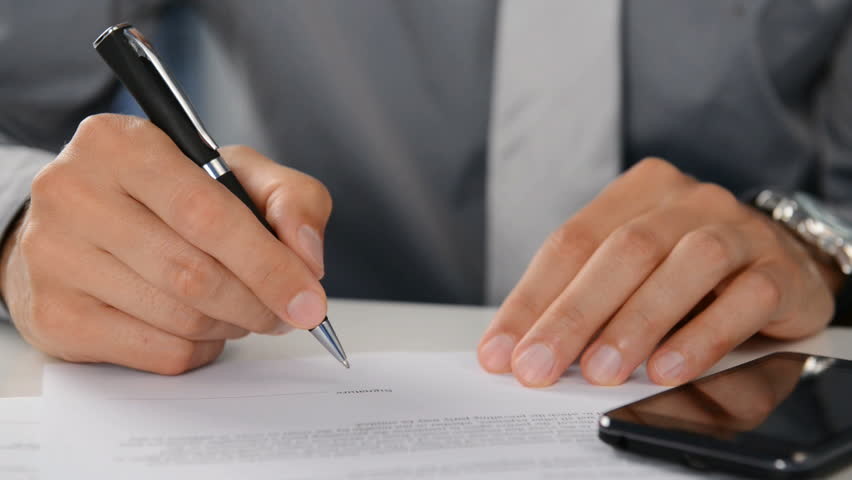Navigating the Real Estate Closing Process: A Step-by-Step Guide
The real estate closing process is the final hurdle before officially becoming a property owner. While it can be exciting, it’s also complex and can be overwhelming, especially for first-time buyers. This guide will walk you through each step of the closing process, helping you understand what to expect and how to ensure a smooth transaction.
1. Understanding the Closing Process
The closing process is the final stage in the home buying journey, where the ownership of the property is legally transferred from the seller to the buyer. This involves signing various legal documents, paying closing costs, and ensuring all contractual obligations are met.
Key Steps in the Closing Process
- Offer Acceptance: Once your offer is accepted, the closing process begins.
- Escrow Account: An escrow account is set up to hold funds until the closing is complete.
- Title Search: A title search is conducted to ensure there are no liens or claims against the property.
- Home Inspection: A home inspection is carried out to identify any potential issues with the property.

2. Preparing for Closing Day
Preparation is crucial to ensure a smooth closing process. This includes gathering all necessary documents, securing financing, and staying in close communication with your real estate agent and lender.
Checklist for Preparing for Closing
- Secure Financing: Ensure your mortgage is approved and all loan conditions are met.
- Review the Contract: Go over the purchase agreement to understand your obligations.
- Organize Your Documents: Have all necessary documents, including ID, insurance, and financial statements, ready for closing day.
- Communicate with Your Agent: Stay in touch with your real estate agent for updates and guidance.

3. Reviewing the Closing Documents
Before closing day, you’ll need to review and sign several important documents. Understanding these documents is essential to avoid any surprises.
Key Closing Documents
- Closing Disclosure: This document outlines the final terms of your loan, including the loan amount, interest rate, and closing costs.
- Deed of Trust or Mortgage: This document secures the lender’s interest in the property.
- Promissory Note: A legal document in which you promise to repay the loan.
- Title Insurance: Protects you against future claims or disputes over the property’s ownership.
4. Final Walkthrough of the Property
The final walkthrough is your last chance to inspect the property before closing. This step ensures that the property is in the agreed-upon condition and that any requested repairs have been completed.
What to Check During the Walkthrough
- Repairs: Confirm that all requested repairs have been made.
- Condition of the Property: Ensure the property is in the same condition as when you last saw it.
- Utilities and Fixtures: Check that all utilities are working and that any agreed-upon fixtures are present.
5. Closing Day: What to Expect
Closing day is when the property officially changes hands. Being prepared and knowing what to expect can make this day go smoothly.
Steps on Closing Day
- Arrive Prepared: Bring all necessary documents and identification.
- Sign Documents: Be prepared to sign numerous legal documents.
- Pay Closing Costs: Ensure you have the funds to cover your closing costs.
- Receive the Keys: Once all documents are signed and payments made, you’ll receive the keys to your new home.
6. Understanding Closing Costs
Closing costs are the fees and expenses you pay to finalize the purchase of a property. These costs can vary but typically include loan origination fees, appraisal fees, and title insurance.
Common Closing Costs
- Loan Origination Fee: A fee charged by the lender for processing the loan.
- Appraisal Fee: The cost of having the property appraised to determine its value.
- Title Insurance: A policy that protects against future claims on the property.
- Escrow Fees: Fees paid to the escrow company handling the closing process.
7. Transferring Ownership
Once all documents are signed and payments made, ownership of the property is officially transferred to you. The deed is recorded with the local government, making you the legal owner.
Steps in the Transfer of Ownership
- Deed Recording: The deed is filed with the county recorder’s office.
- Title Transfer: The title is officially transferred from the seller to the buyer.
- Final Payments: Any remaining funds are distributed, and the transaction is complete.

8. Conclusion
Navigating the real estate closing process can be complex, but understanding each step can help ensure a smooth transaction. From preparing your documents to completing the final walkthrough, being informed and prepared will help you close on your new home with confidence.
FAQs
1. What is the purpose of an escrow account in the closing process?
An escrow account holds funds and documents during the closing process until all conditions are met and the transaction is complete.
2. How long does the real estate closing process typically take?
The closing process typically takes 30 to 60 days from the time your offer is accepted.
3. What should I bring to the closing?
You should bring a valid ID, proof of insurance, any required documents, and the funds for your closing costs.
4. Can closing costs be negotiated?
Yes, closing costs can sometimes be negotiated with the seller or your lender, depending on the circumstances.
5. What happens if there are issues during the final walkthrough?
If issues arise during the final walkthrough, they should be addressed before closing, either through repairs or financial adjustments.
